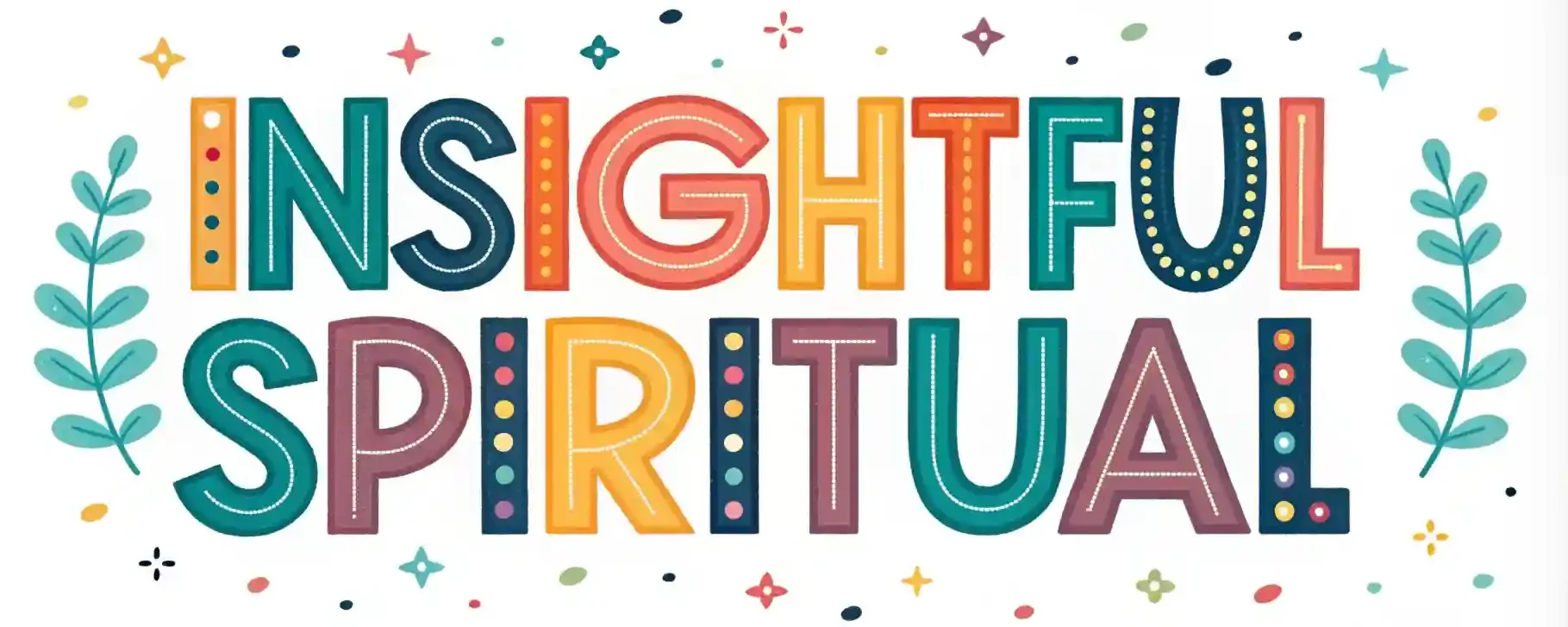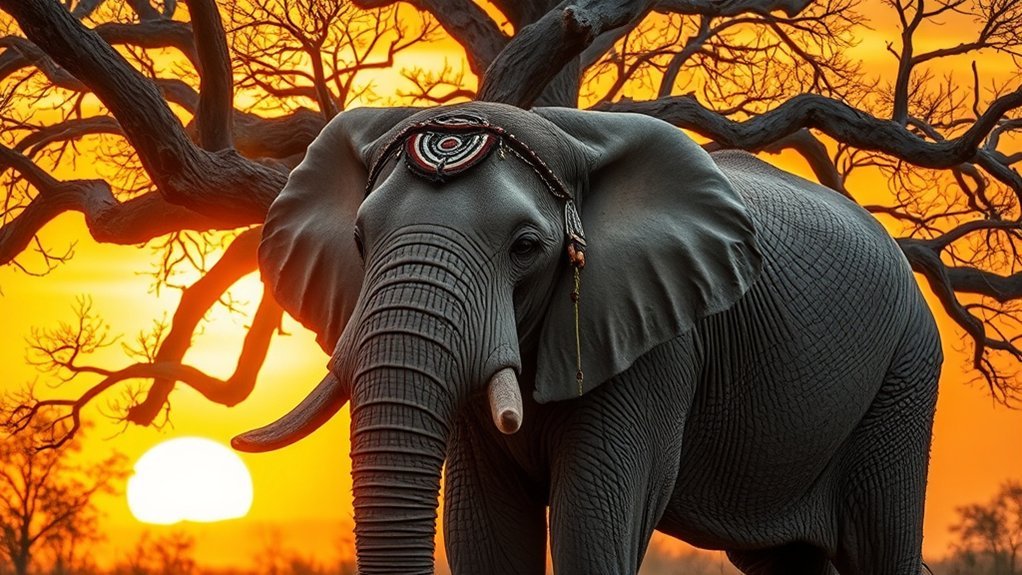Elephant Symbolism: Meaning and Cultural Significance
Elephants have been symbols of good qualities for many cultures. People see them as symbols of wisdom, strength, and patience. They appear in stories, art, and religious words. These animals are trusted to show leadership, loyalty, and calm power. Learning what elephants mean to different people can help us understand how humans connect with these gentle giants. It can also teach us lessons about being resilient and caring for others. Looking at what elephants symbolize can give us ideas about old beliefs and new efforts to protect and honor them.
The Spiritual Significance of Elephants in Religious Traditions
Elephants are important in many religions and spiritual practices around the world. They stand for qualities like wisdom, strength, and kindness.
In modern spirituality, people see elephant symbols as a way to grow and find peace. Many believe that feeling connected to elephant energy can help bring patience, clear thinking, and calm into life.
Elephants are seen as guides that teach us to be gentle but strong. They remind us to be kind to others.
Using elephant symbols in meditation, visualizations, or ceremonies can help people understand themselves better and feel closer to the universe. More and more, people use elephant symbolism in their spiritual routines. These symbols inspire many on their journey to a better life.
Symbolism of Elephants in Folklore and Mythology
Elephants show up a lot in stories and legends from different cultures. They often stand for qualities like wisdom, memory, and strength. In these stories, elephants are sometimes seen as gentle giants that guide heroes or offer stability.
You can find stories about elephants from Africa, India, and Southeast Asia. In these tales, elephants are connected to gods and special traditions. They’re known for their power, smarts, and kind nature.
These stories help us see elephants as symbols of good qualities. Learning about these stories can help us appreciate why many cultures respect and admire elephants. Their image in stories teaches lessons about wisdom, friendship, and resilience.
Recognizing these symbols helps us feel connected to the cultures that have loved elephants for many years.
The Role of Elephants in Art and Cultural Expressions
Elephants play a big role in art and culture. They’re often shown in dance performances. In these dances, elephants move calmly and gracefully. This shows wisdom and respect, especially in India.
Elephants also appear in stories and books. Writers use them as symbols of strength, memory, and loyalty. They help tell stories about characters and culture.
Including elephants in art and stories helps communities remember their traditions. It also helps people feel connected to their history.
The Representation of Strength and Wisdom Through Elephants
Elephants are big and gentle animals. Because of this, they often stand for strength and wisdom. Their size shows they’re powerful and protective. They also act smart, which shows they’re wise.
When you think of elephants, picture maybe a group walking together calmly. This shows teamwork and leadership. Or picture an elephant softly caring for its baby. That shows kindness and wisdom.
Their trunks are important too. They use them for defense and for gentle tasks. This shows they’re flexible and clever.
Elephants teach us that real strength is more than just muscles. Wisdom means being kind, patient, and understanding.
Contemporary Interpretations of Elephant Symbolism in Society
Today, many people see elephants as symbols of strength and wisdom. But now, these symbols also stand for kindness, persistence, and caring for our environment.
Elephants are used in campaigns to protect endangered animals and save natural places. Their image reminds us to take care of nature and keep our Earth healthy.
Elephants also connect to bigger issues like climate change and losing homes for animals. They motivate communities to help with conservation projects.
As symbols of resilience, elephants inspire us to stay strong through tough times. By understanding what elephants represent today, we join a worldwide movement to be kind to animals and protect our planet.
FAQs
How Do Elephants Symbolize Longevity Across Different Cultures?
Elephants are seen as symbols of a long life in many cultures. In some places, they are believed to live for many years and keep wisdom with them. This idea makes elephants special. For example, in India, elephants are part of religious stories and celebrations. People see them as symbols of strength and a long, good life.
In Africa, elephants are also thought to live for many years. They are strong animals that stay together in groups. Their long lives and careful ways make them symbols of endurance. They remind people of the importance of patience and wisdom.
Across different cultures, elephants are linked to longevity. They help us think about living well and staying strong over time. By learning what elephants mean in different stories and traditions, we understand more about respect, life, and wisdom. These ideas make elephants more than just animals. They become symbols that connect us to a long and meaningful life.
What Ecological Roles Do Elephants Play in Their Habitats?
Elephants play an important role in their homes. They live in herds and move in groups. As they walk, they make water holes. These water holes help animals find water to drink. Elephants also carry seeds in their dung. When they eat fruits and walk around, they spread seeds. This helps new plants grow. These actions help many animals and plants live together. Elephants help keep their homes healthy. Their work makes the land better for other animals and plants. People who protect elephants see how big an impact they have. Elephants do more than just live in the wild. They help their entire environment stay strong and balanced.
Are There Specific Rituals Involving Elephants in Modern Ceremonies?
In some places, people still hold special ceremonies with elephants. They believe elephants bring good luck and happiness. During these ceremonies, people may ask elephants to bless them or their homes.
One common event is the elephant blessing. Here, elephants walk through the area, and people pray for a positive year ahead. The elephants’ size and strength symbolize power and protection.
Another event is the elephant wedding blessing. In this ceremony, elephants help bring two families or communities together. The animals stand by the bride and groom, showing their support. These rituals help everyone feel connected and part of a bigger group.
These ceremonies show respect for elephants and their role in local traditions. They remind people of the importance of kindness, unity, and good fortune.
How Do Conservation Efforts Influence the Symbolic Value of Elephants?
Conservation efforts help protect elephants and keep their value in our minds. When we work to save elephants, people see how important they are to our culture and stories. These efforts remind us why elephants matter. They make us feel more connected to these animals. This connection makes us want to protect elephants now and in the future. By caring for elephants, we keep their meaning alive for the next generations.
What Are Common Misconceptions About Elephant Symbolism Worldwide?
Many people think elephant symbols only mean wisdom or strength. But this is not the full story. Different cultures see elephants in other ways too. Some cultures see elephants as symbols of good luck. Others think they stand for family and harmony.
Many believe that helping elephants through conservation hurts their cultural value. But in reality, saving elephants keeps their old meanings alive. Protecting elephants helps people keep their traditions.
Understanding what elephants really mean can help us respect them more. They are more than just big animals. They are symbols that carry deep stories for different groups of people.

Hi, I’m Aurelia Starfrost, your spiritual guide at InsightfulSpiritual.com. I love exploring ancient wisdom and modern practices to help you on your journey. With a focus on meditation and energy healing, I’m here to guide you to find solace within and discover your spiritual essence.







